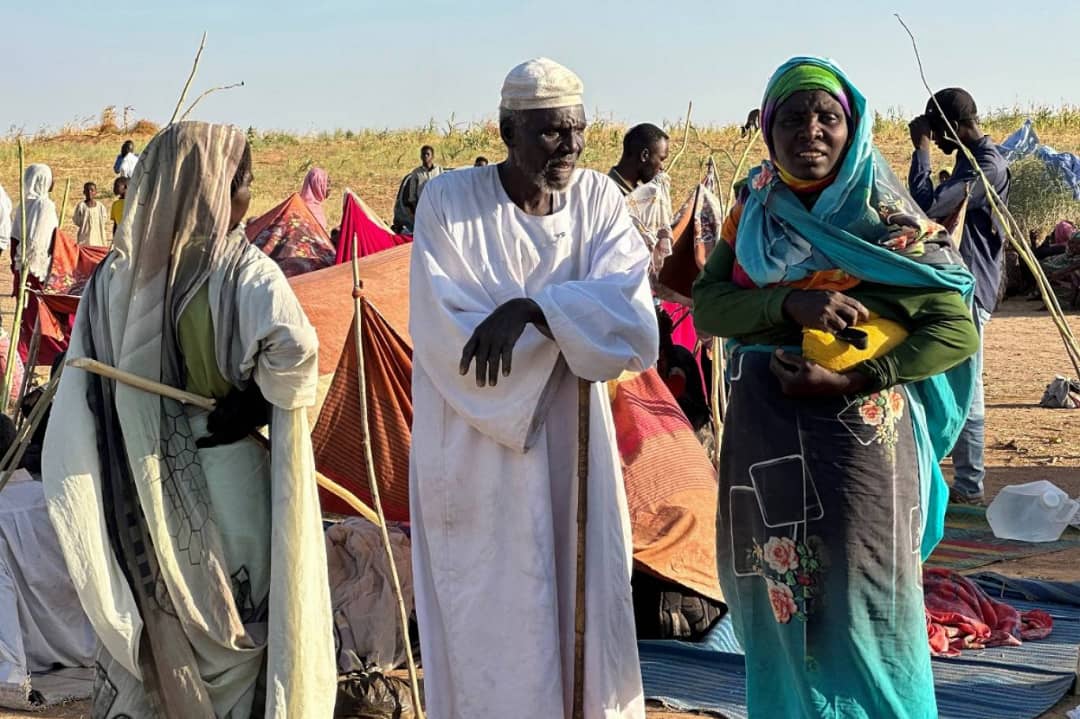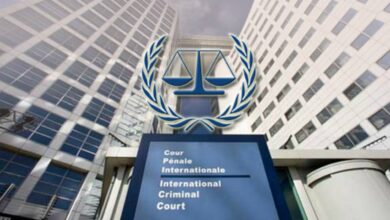
Civilians fleeing violence in the city of El Fasher, in Sudan’s western Darfur region, are facing escalating dangers — including starvation, beatings, and the risk of falling into the hands of the Rapid Support Forces (RSF), which now control the city.
Tens of thousands fled El Fasher after the RSF declared control over it, following more than 18 months of siege and fierce fighting with the Sudanese army amid the war that erupted in April 2023. Since the city’s fall, numerous testimonies have emerged reporting summary executions, sexual violence, attacks on aid workers, and acts of looting and abduction, while communications remain largely cut off.
Witnesses told AFP that the RSF arrested hundreds of civilians attempting to flee El Fasher via the nearby town of Korni, releasing some only after payment of ransom fees worth hundreds of dollars. One freed detainee said about 150 people were crammed into one room, and “most of them were executed,” while others were released after paying ransoms.
“You Are Slaves”
Hussein, who asked not to disclose his full name for safety reasons, said he was detained for four days along with 200 others in a school in Korni, where “we were beaten with sticks, and they told us: You are slaves.”
From inside an RSF detention center in Korni, Abbas Al-Sadiq sent a video to his family, begging them to send two million Sudanese pounds (about USD 900) for his release. A relative said they had no idea he had been arrested until they received the ransom demand. They sent the money, and he was freed.
Widespread Abuses
The Yale University Humanitarian Research Lab warned that satellite imagery indicates large gatherings of displaced people in Korni, where reports point to serious human rights violations.
Death by Hunger or Bullets
Hussein Salem and his family reached the town of Tawila, west of El Fasher, after a grueling five-day journey, during which they saw numerous unburied bodies — people who had died of hunger, thirst, or gunfire.
Sitting under the sun, Salem said, “I buried my eldest son before we reached Korni, after they beat him to death in front of me and his siblings.”
Nearby, Suad Abdelrahman said she lost contact with her mother and siblings after leaving El Fasher. “I don’t know if they went back or fled somewhere else,” she said, sitting alone under a makeshift shelter made of old clothes hung on a thorn tree in one of Tawila’s streets. “I’m here by myself.”
Continuing Atrocities
Adam Issa, his clothes still stained with the blood of his two sons, said they were killed while trying to flee El Fasher. “My sons, aged 17 and 21, were shot dead before my eyes,” he said. RSF fighters accused them of fighting alongside the army. When Issa arrived in RSF-controlled Korni, they saw his bloodstained clothes and accused him of being a soldier too. After days without food or water, he and his remaining family finally reached Tawila, 70 kilometers west of El Fasher.
Tens of thousands of displaced people have taken refuge in Tawila, sleeping on the ground without shelter or adequate medical care after surviving a siege that lasted more than a year.
Sylvain Behinco, the Darfur coordinator for Médecins Sans Frontières (MSF), said, “People are traumatized, and everyone here is searching for someone.” He added that “many of those who fled to Tawila said they were targeted because of their skin color.”
“I Don’t Know Anything About My Son”
Near El Fasher, on the road to Korni, RSF fighters stopped Zahra Daw Al-Bait and her two sons, aged 20 and 16. They detained them despite her pleas to let them go. They later released the younger boy, “but I don’t know what happened to my other son, Mohammed — whether he was killed or is still alive.”
The United Nations said last Friday that the death toll from the RSF assault on El Fasher may reach hundreds, while the army-aligned government accused the RSF of killing around 2,000 civilians.
RSF leader Mohamed Hamdan Dagalo (Hemedti) expressed regret for the catastrophe suffered by El Fasher’s residents last Wednesday, promising accountability. On Thursday, RSF command issued an order to “protect civilians,” instructing its forces to allow civilians to leave conflict zones and to prohibit enforced disappearances and arbitrary detention.
The RSF’s capture of El Fasher gives it full control over all five Darfur state capitals, effectively dividing Sudan into eastern and western blocs — with the army controlling the north, east, and central regions.
The RSF, which originated from the Janjaweed militias accused of genocide and ethnic massacres in Darfur two decades ago, is itself now facing allegations of war crimes and widespread violence amid the ongoing war that has ravaged Sudan for over two years.




